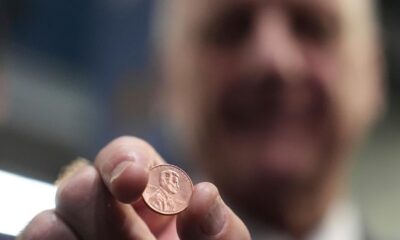Health
Mutter Museum Revamps Policy to Honor Human Remains Donors

The Mutter Museum in Philadelphia has revamped its policy on the display of human remains, a decision prompted by two years of ethical debate. The museum now aims to “contextualise” and de-anonymise its collection, a shift that places greater emphasis on the personal stories behind the anatomical exhibits.
Previously, the museum displayed the remains of a man identified only by his initials, JW. This individual, known as Joseph Williams, had a remarkable life story that the museum now intends to share alongside his anatomical record. This policy change was announced last week, marking a significant step in the museum’s approach to handling sensitive historical and medical artifacts.
Sara Ray, the museum’s senior director of interpretation and engagement, articulated the museum’s new direction. “The issue isn’t whether we should or shouldn’t exhibit human remains,” she stated. “But rather, can we do so in a way that does justice to these individuals and their stories as we trace the history of medicine, bodily diversity, and the tools and therapies developed to treat them?”
The decision to amend the display policy comes in response to growing concerns about the ethical implications of exhibiting human remains. Critics have urged institutions like the Mutter Museum to reconsider how they present these items, advocating for a more respectful and informative approach. This shift aligns with a broader trend in museums and cultural institutions seeking to balance educational value with ethical responsibility.
The museum’s collection includes a variety of anatomical specimens, each with its own story. The new policy aims to provide context for these items, allowing visitors to gain a deeper understanding of the individuals behind the displays. This change is expected to enrich the visitor experience and foster a more meaningful connection with the history of medicine.
As the Mutter Museum implements this policy, it joins an ongoing conversation in the museum community about the ethical treatment of human remains and the importance of honoring the lives of those represented. By focusing on the stories of donors like Joseph Williams, the museum hopes to transform the narrative surrounding anatomical exhibits from one of mere curiosity to one of respect and recognition.
This move reflects a growing recognition within the cultural sector that the presentation of human remains must be handled with care. Institutions are increasingly called upon to ensure that their exhibits do not exploit or dehumanize the individuals represented. As the Mutter Museum navigates this complex landscape, it sets a precedent for how medical history can be shared in an ethical and engaging manner.
In summary, the Mutter Museum’s decision to contextualise its collection marks a pivotal moment in the ethical display of human remains. By honoring the stories of donors like Joseph Williams, the museum not only enhances educational opportunities but also promotes a more respectful treatment of those whose lives are part of medical history.
-

 World1 week ago
World1 week agoPrivate Funeral Held for Dean Field and His Three Children
-

 Top Stories2 weeks ago
Top Stories2 weeks agoFuneral Planned for Field Siblings After Tragic House Fire
-

 Sports3 months ago
Sports3 months agoNetball New Zealand Stands Down Dame Noeline Taurua for Series
-

 Entertainment3 months ago
Entertainment3 months agoTributes Pour In for Lachlan Rofe, Reality Star, Dead at 47
-

 Entertainment2 months ago
Entertainment2 months agoNew ‘Maverick’ Chaser Joins Beat the Chasers Season Finale
-

 Sports3 months ago
Sports3 months agoSilver Ferns Legend Laura Langman Criticizes Team’s Attitude
-

 Sports1 month ago
Sports1 month agoEli Katoa Rushed to Hospital After Sideline Incident During Match
-

 World2 weeks ago
World2 weeks agoInvestigation Underway in Tragic Sanson House Fire Involving Family
-

 Politics2 months ago
Politics2 months agoNetball NZ Calls for Respect Amid Dame Taurua’s Standoff
-

 Top Stories2 weeks ago
Top Stories2 weeks agoShock and Grief Follow Tragic Family Deaths in New Zealand
-

 Entertainment3 months ago
Entertainment3 months agoKhloe Kardashian Embraces Innovative Stem Cell Therapy in Mexico
-

 World4 months ago
World4 months agoPolice Arrest Multiple Individuals During Funeral for Zain Taikato-Fox













